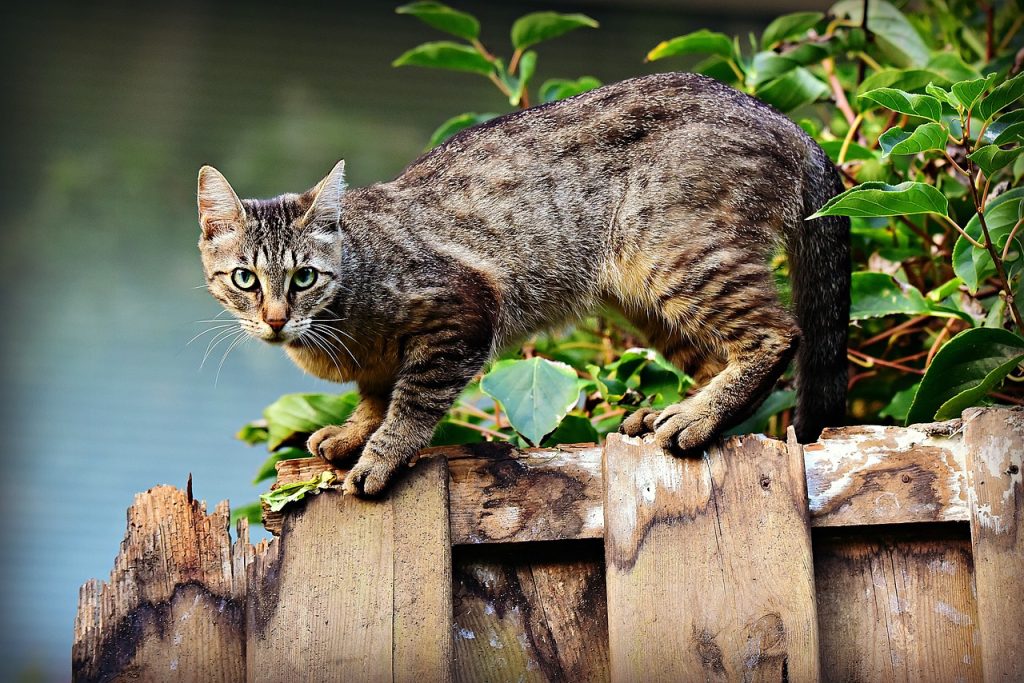For pet owners, there’s nothing more heartbreaking than seeing their furry friend suffer from allergies. It’s a common problem that can cause a range of symptoms, from itchy skin to digestive issues. But did you know that your pet’s diet can play a big role in managing their allergies? With so many options out there, it can be overwhelming to choose the right food for your pet. That’s why we’ve compiled a list of the top diets for allergic pets, so you can help your furry friend live their best life.

1. Feline Foodies Rejoice: The Best Diets for Allergic Cats
When it comes to feeding our feline friends, it’s important to consider any allergies or sensitivities they may have. Allergic cats can experience a range of symptoms, from skin irritation to digestive issues, so finding the right diet is crucial for their health and wellbeing. Here are some of the best diets for allergic cats:
– Limited ingredient diets: These diets contain a minimal number of ingredients, making it easier to identify and avoid potential allergens. Look for formulas that feature a single protein source, such as chicken or fish, and a limited number of carbohydrates, such as sweet potato or pea. Some popular brands include Natural Balance L.I.D. and Blue Buffalo Basics.
– Novel protein diets: If your cat has a known allergy to a certain protein, such as chicken or beef, a novel protein diet may be a good option. These diets feature less common protein sources, such as duck, venison, or rabbit, which your cat may not have been exposed to before. Some examples include Hill’s Prescription Diet z/d and Royal Canin Veterinary Diet Ultamino.
It’s important to note that every cat is different, and what works for one may not work for another. If you suspect your cat has a food allergy, consult with your veterinarian to determine the best course of action. With the right diet, your feline foodie can enjoy a happy, healthy life free from discomfort and irritation.
2. Canine Cuisine: Tailored Diets for Dogs with Allergies
When it comes to feeding our furry friends, we want to make sure they are getting the best nutrition possible. However, for dogs with allergies, finding the right diet can be a challenge. Luckily, there are many options available to ensure that our pups are getting the nutrients they need without triggering their allergies.
One option is to switch to a limited ingredient diet, which involves feeding your dog food that contains only a few ingredients. This can help to identify which ingredients your dog is allergic to and eliminate them from their diet. Another option is to feed your dog a hypoallergenic diet, which is specially formulated to be free of common allergens. These diets often contain novel proteins and carbohydrates that your dog may not have been exposed to before.
- Switch to a limited ingredient diet
- Feed your dog a hypoallergenic diet
- Try home-cooked meals with ingredients that your dog isn’t allergic to
- Avoid foods that commonly cause allergies in dogs, such as wheat, corn, and soy
It’s important to work closely with your veterinarian to determine the best diet for your dog’s specific allergies and nutritional needs. With the right diet, your dog can live a happy and healthy life, free from the discomfort of allergies.
3. From Fish to Fowl: Specialized Diets for Allergic Pets of All Kinds
Pets with allergies require specialized diets that cater to their unique needs. From fish to fowl, there are many options available for pets with allergies. Here are some of the best diets for allergic pets of all kinds:
- Fish-based diets: Fish-based diets are a great option for pets with allergies to other meats. They are rich in omega-3 fatty acids, which can help reduce inflammation and improve skin and coat health. Some popular fish-based diets include salmon, trout, and herring.
- Poultry-based diets: Poultry-based diets are another great option for pets with allergies. They are high in protein and low in fat, making them a healthy choice for pets. Some popular poultry-based diets include chicken, turkey, and duck.
- Grain-free diets: Many pets with allergies are also sensitive to grains. Grain-free diets are a great option for these pets, as they are made without any grains. Instead, they are made with alternative sources of carbohydrates, such as sweet potatoes or peas.
No matter what type of diet you choose for your allergic pet, it’s important to work closely with your veterinarian to ensure that your pet is getting all of the nutrients they need. Your vet can help you choose the best diet for your pet’s specific needs and can monitor their health to ensure that they are thriving on their new diet. With the right diet and care, pets with allergies can live happy, healthy lives. In conclusion, finding the right diet for your furry friend with allergies can be a daunting task. However, with the help of this guide, you can now make an informed decision and choose the purr-fectly tailored diet for your pet. Remember to consult with your veterinarian before making any major changes to your pet’s diet and always keep an eye out for any adverse reactions. With the right diet, your pet can live a happy and healthy life, free from the discomfort of allergies.

